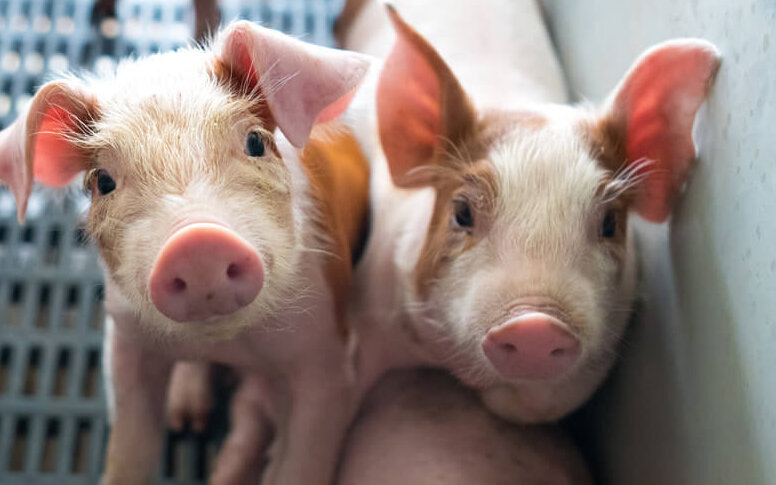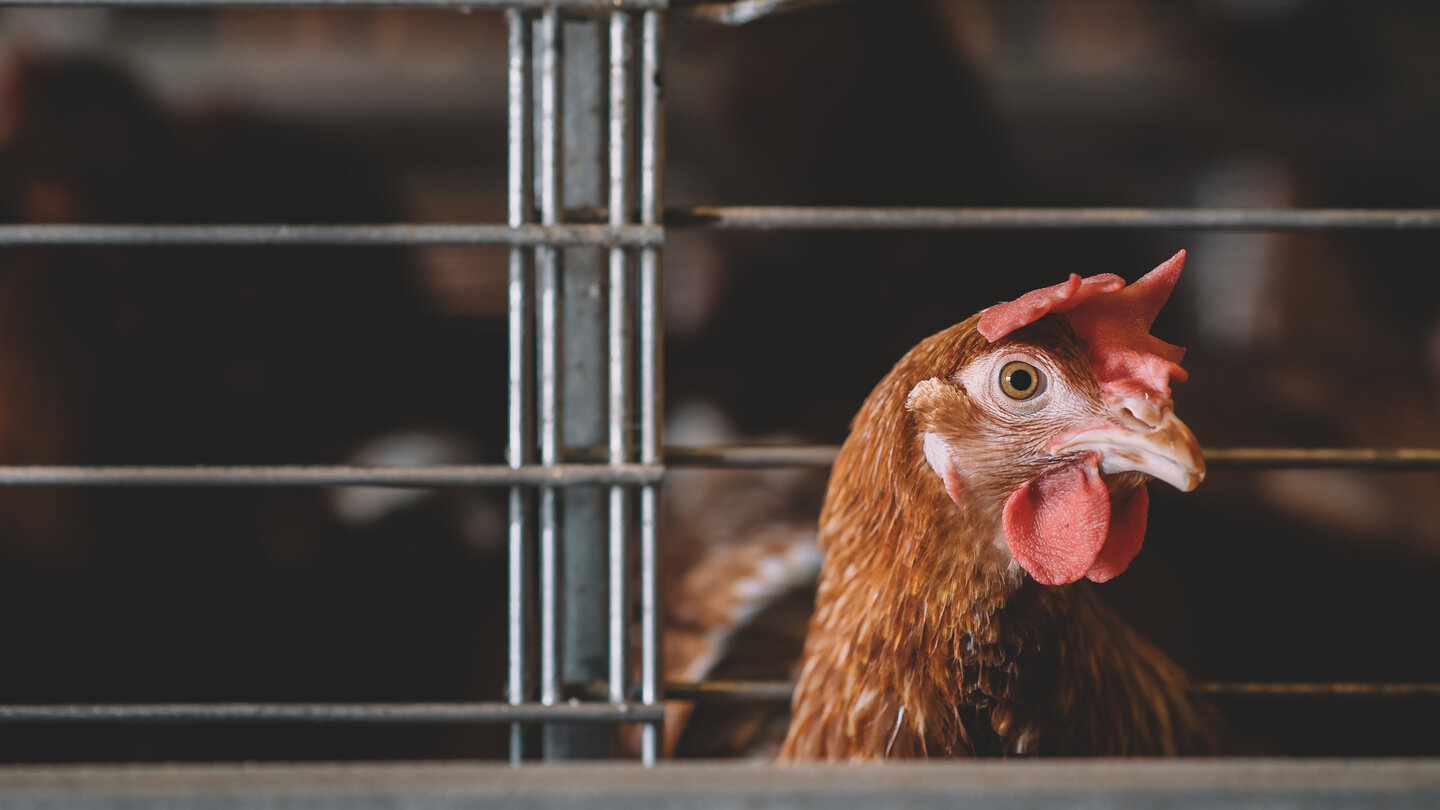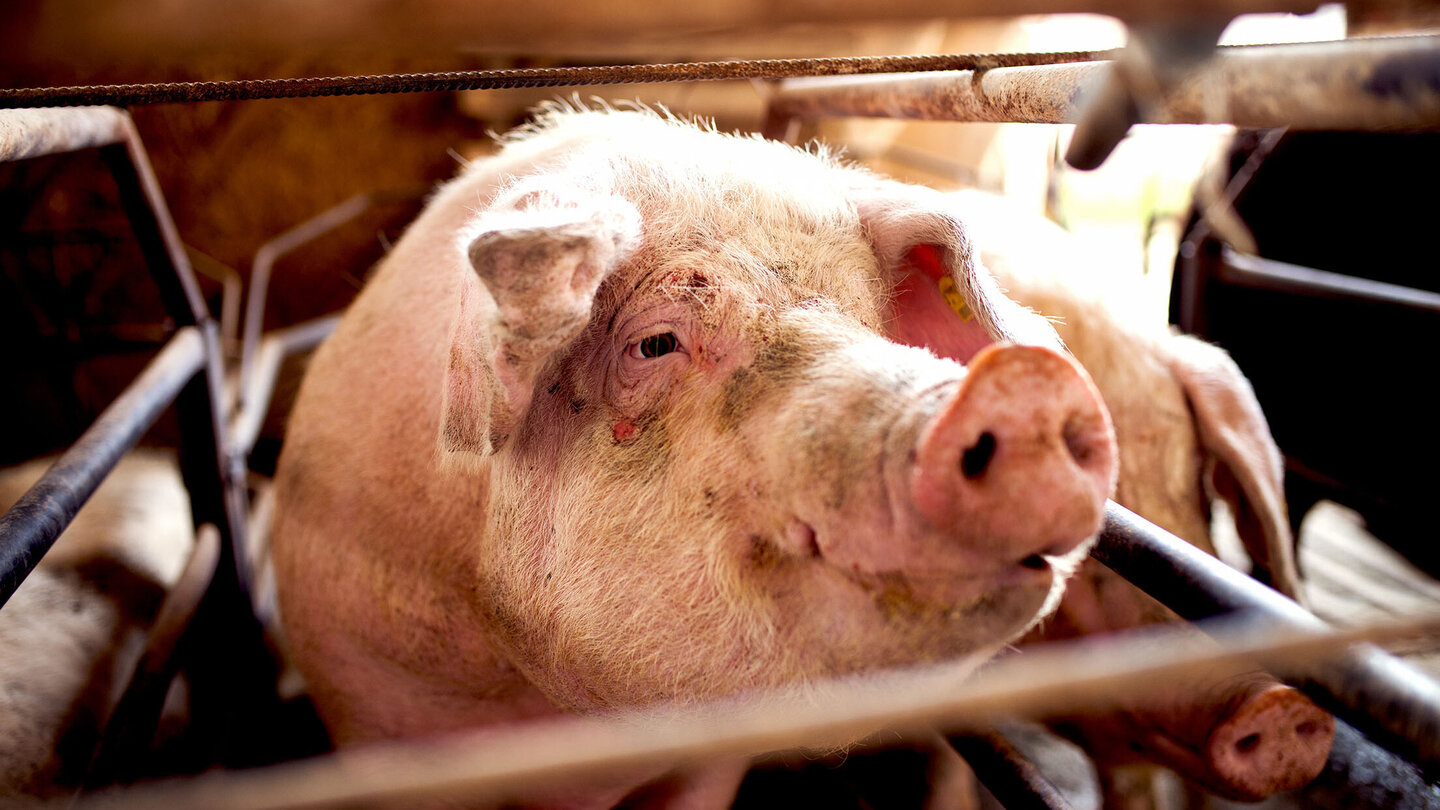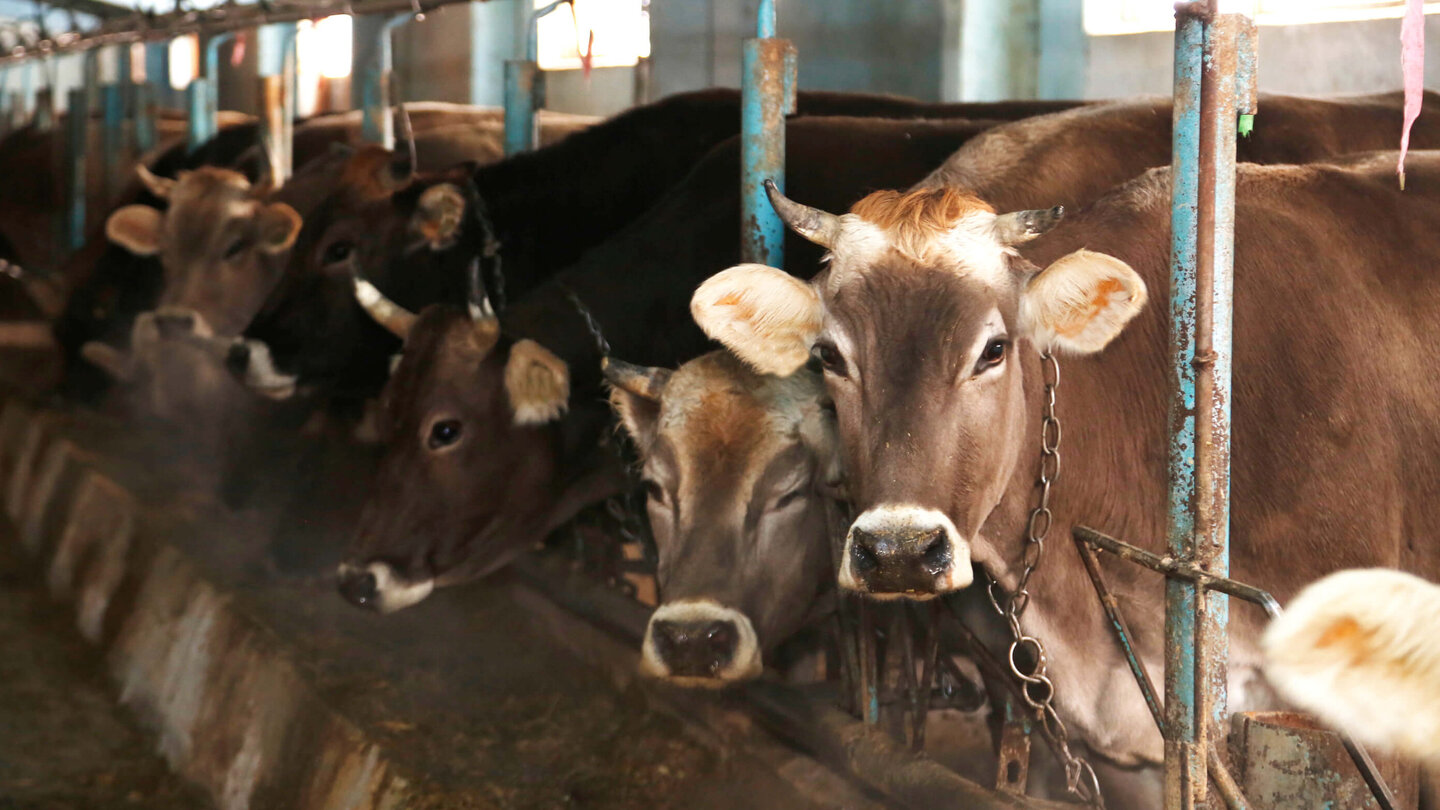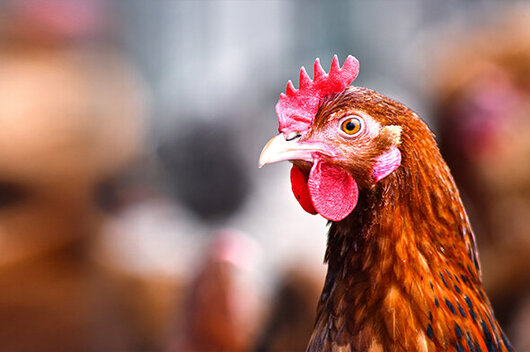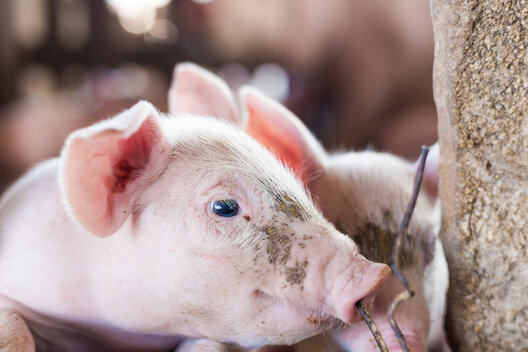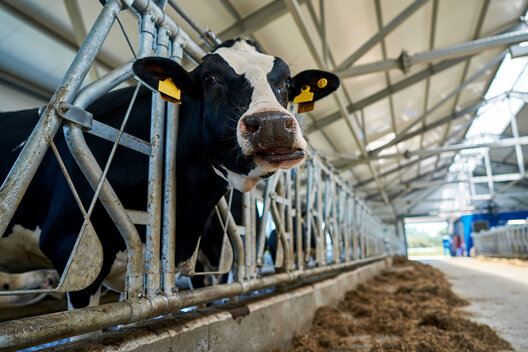Animal factories instead of farmsWhat you should know about factory farming
Supermarkets offer a huge selection of meat, cheese and milk at bargain prices. The production of animal-based foods for as little money as possible is a pure industry and is only possible through factory farming or intensive livestock farming. The number of farms is decreasing, the number of animals in them is increasing. Today, 100,000 laying hens, tens of thousands of broilers or turkeys per farm are the rule rather than the exception. Animal factories housing 50,000 pigs have long since become a reality. This goes hand in hand with intensive, animal-wasteful husbandry systems and high-performance breeding that reduces animals to mere production units.
Factory farming increases profits
When profit is the top priority for the food industry and agriculture, the focus is always on reducing costs. This is why producers largely dispense with littered lying and walking areas as well as materials to keep the animals occupied. They also do not provide the animals with any structures - such as retreats or raised areas for chickens and turkeys to exercise their behavior. Instead, they keep their animals in very confined spaces in monotonously barren halls. For our "daily needs", tens of thousands of broilers and turkeys are often crowded into barns, sometimes without daylight. Numerous laying hens still squat in small group cages, while many dairy cows still eke out a dreary existence and are tethered in stalls for months or even permanently. At the same time, there are still sows that have to live in small pens or even crates .
How animals suffer in intensive livestock farming
In the cramped environment of factory farming, pigs, chickens and cattle usually have little or no material to keep them occupied. The stables are huge halls with no retreats, feeding or "toilet" areas. The animals cannot move around, rest, eat, explore their surroundings or interact with other animals as they would like. This leads to illness, stress, frustration and behavioral disorders. Many animals then chew on bars or troughs, roll their tongues or injure each other.
Cruel practices in factory farming
In order for the animals to produce as much meat, eggs, milk or offspring as possible, they are bred to deliver extreme performance. In doing so, the breeding companies exceed the limits of what the animals' bodies are capable of for the sake of profit. The resulting damage to health, pain and shortened lifespan are accepted with approval.
Animals that injure each other mean losses for farms. Instead of keeping them in a more species-appropriate way, farmers adapt the animals. For example, they shorten the beaks of turkeys instead of giving them more space.
Calves' horns are cauterized or thermally cauterized to reduce the risk of injury to humans and the cattle themselves. This is permitted up to the age of six weeks without anaesthetic.
To prevent pigs from biting each other's tails off in the confines of their pens, farmers shorten them. If the animals were allowed to live in a more species-appropriate environment, they would not injure each other.
Farmers grind down piglets' teeth without anaesthetic in the first few days of life so that they do not injure the sow or their siblings in the fight for the teats. This struggle for survival is caused by breeding for ever larger litters. As a result, more piglets are often born than the sow can feed with her teats.
How you can help farm animals
- Shop more consciously. Turn items such as meat or dairy products from factory farming into shelf warmers. After all, retailers only offer what people buy. If you want to be sure that you buy products that are produced in an animal-friendly way and no products from industrial animal husbandry systemslook out for the animal welfare label "Für mehr Tierschutz" from the German Animal Welfare Federation or the NEULAND association for animal-friendly and environmentally friendly livestock farming.
Look out for the organic label, especially from organic farming associations such as Bioland, demeter or Naturland, as well as from the NEULAND association for animal-friendly and environmentally friendly livestock farming. However, do not be fooled by terms such as "artgerechte Haltung" and "Weidemilch" or advertising with "Tierwohl" deceive you. You can find out more in our brochure "Consumers have the power". (available in German only) - Vegan diet. A purely plant-based diet is the most animal-friendly way of life. Conventional supermarkets and drugstores now offer a wide range of plant-based milk and yogurt alternatives, vegan spreads, dips and sauces or vegan versions of products such as sausage, fish, schnitzel and cheese. The numerous meat and fish alternatives make it easier to start a plant-based diet.
This is what the German Animal Welfare Federation demands
Farms must keep animals in appropriate groups instead of housing them in ever larger mega-stables. They need sufficient exercise opportunities, daylight and separate areas where they can rest, eat or defecate. Sufficient natural enrichment material and structures are just as important. They also need outdoor exercise. Only then can these social animals follow their instincts, explore their surroundings together, forage for food or retreat when they feel like it.
Much of the legislation on agricultural husbandry is too lax. For some animal species, there are still not even minimum legal standards. Although there are rules for everything in Germany, there are still no specific husbandry regulations for cattle, turkeys, sheep and waterfowl such as ducks and geese. These specific requirements urgently need to be created. In addition, the legislator must close further loopholes that arise due to exemptions.
More animal welfare in stables must also be worthwhile for the farms. Those who offer their animals more space, structures, employment or exercise should receive state subsidies and benefit economically through higher sales prices.

